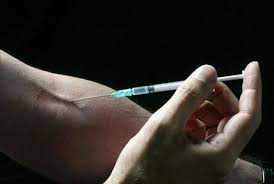By Aaron Miller-
A U.S judge has given the green light for the first facility to open in Philadelphia that would allow and supervise the injection of illegal drugs. The ruling is the first of its kind in the United States.
Safehouse, a nonprofit organisation that aims to reduce drug overdose deaths through prevention services, first announced their plans to institute the overdose prevention site in 2018 after receiving verbal support from city officials. Horrified residents close to the site immediately opposed the plans which many hardly imagined would ever receive approval from a sitting judge.
The announcement led to the U.S Attorney bringing a suit in February 2019, alleging that the site would violate the Controlled Substances Act by encouraging the use of illegal drugs such as heroin.
The statute it would normally violate states that it is illegal to “manage or control any place and knowingly and intentionally make available for use, with or without compensation, the place for the purpose of unlawfully using a controlled substance.”
The controversial ruling from a judge legally permitting the site has enraged those located close to the vicinity where the facility is scheduled to open. On the other end of the spectrum of controversy is the approval from some social workers and other advocates who hold the view that the unusual innovation will be effective in bringing help to drug users.
Last February, a US Attorney in Pennsylvania sued Safehouse, a private nonprofit looking to open such a site, saying that the injection sites violate federal law.
RULING
U.S District Judge Gerald Austin McHugh ruled on Tuesday that the nation’s first safe injection site for illicit drug users can open in South Philadelphia. The U.S Attorney’s Office for the Eastern District of Pennsylvania plan to appeal the latest order. Prosecutors argued that such a site would be illegal, but McHugh concluded it did not violate federal law.
The objective of the safe-injection sites is to get heroin, fentanyl and other drug use off of public streets, and into medically supervised facilities. The organisers hope this will prevent overdose deaths, prevent the spread of HIV and Hepatitus C, limit drug-related crime and litter, and offer addicts a range of social, legal and housing services.
“The goal is to get people off the street, save their lives, and get them into treatment when they’re ready,” said Ronda Goldfein, executive director of the AIDS Law Project of Pennsylvania and vice president of Safehouse.
Safehouse would operate the safe-injection site and it would be privately funded, she said at a press conference on Wednesday.
Former governor and Philadelphia mayor Ed Rendell, also a board member of Safehouse hailed the latest legal victory.
“I think people misunderstand what Safehouse is. It’s a clean injection facility. We don’t handle narcotics. People have to bring their narcotics with them. We give them clean needles and we make sure that the needles they use in Safehouse are confiscated before they go to the streets,” he explained.
“But most importantly, we talk to them about treatments. Before they can inject themselves in front of our professionals, our nurses and doctors, before they do that, we have social workers talking to them about getting into treatment programs,” Rendell said.
Local residents are fuming with the arrangements. Some gatecrashed a press conference, voicing their opposition to the plan. One argued that drug users would come to the area for the safe-injection site, bringing with them crime to pay for the drugs and drug dealers looking to make money.
U.S Attorney William M. McSwain said this of his plans to appeal the ruling: “We believe that Safehouse’s proposed activity threatens to institutionalize the scourge of illegal drug use — and all the problems that come with it in Philadelphia neighborhoods.”
Philadelphia Mayor Jim Kenney publicly endorsed the controversial concept in early 2018, encouraging the development of “Comprehensive User Engagement Sites.” The walk-in facilities would offer access to sterile needles, the opioid overdose-reversing drug naloxone, wound care and referral to social services

